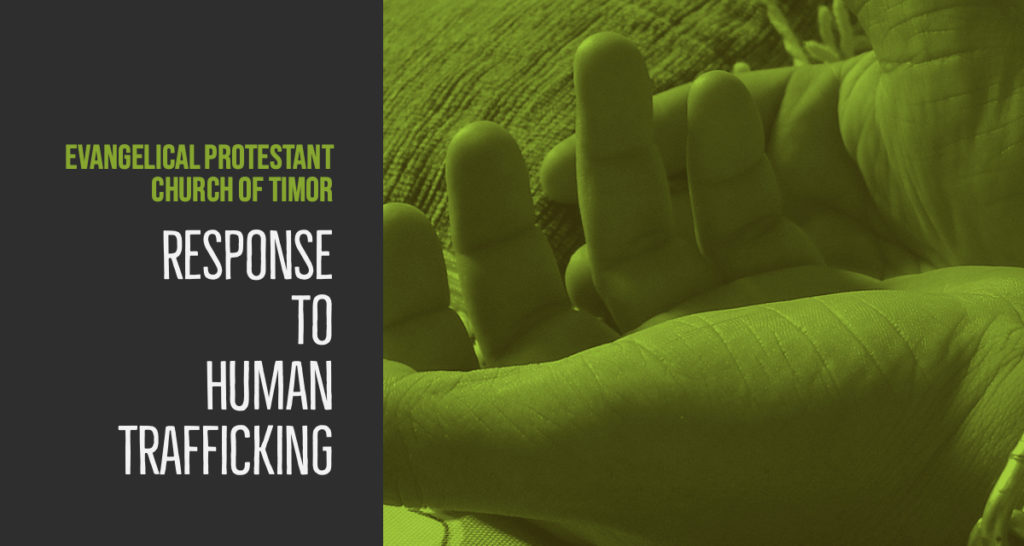Update on Evangelical Protestant Church of Timor’s Response to Human Trafficking
Global Ministries partner, the Evangelical Protestant Church of Timor, known by its Indonesian acronym, GMIT, is still wrestling with the problem of human trafficking that has caused many deaths. In 2018, bodies of 104 migrant workers were returned to East Nusa Tenggara Province, Indonesia. Already in 2019, the body of a victim who died due to sudden cardiac arrest has been returned to this province.
Through the Board for Legal Advocacy and Peace, and the Ministerial Unit on Response to Natural and Human Disasters, GMIT has conducted a number of activities to raise awareness and counter measures such as: collaboration with government institutions that care for migrant workers, providing education on the dangers of human trafficking, serving as resource persons in seminars and workshops on human trafficking organized by GMIT as well as other institutions, caring for victims who return to NTT in coffins (leading prayers of consolation), and bringing cases to the court.
On February 25, 2018, GMIT established the House of Hope (Rumah Harapan) as a shelter for victims/survivors of human trafficking and gender-based violence who experience physical and psychological trauma. It was organized in cooperation with support from local networks such as the East Indonesian Women’s Network, the Fellowship of Indonesian Churches (PGI), and international church partners such as Kerk in Actie in the Netherlands, Mission 21 in Switzerland, and Global Ministries in the USA. Its programs include preventive measures and litigation assistance.
One main challenge we have been facing in this anti-human trafficking mission is related to developing an organizational structure at the grass roots. It is our aspiration for this mission to not only be centralized at the synod level, but also to be a priority agenda for GMIT’s presbyteries and congregations.
Besides this, we see that the provincial government’s moratorium on the sending of migrant workers from this province outside the country, issued late in October 2018 has not seriously addressed the problem of human trafficking. The text of this moratorium mentions neither “human trafficking” nor strategies to overcome it.
To address these challenges, GMIT will continue its work on the anti-human trafficking mission by conducting programs, such as to organize a discussion about the government moratorium and its impact; provide legal assistance; encourage the formation of structures at the presbytery and congregational levels; organize and distribute Information, Education and Communication materials on the dangers of human trafficking; equip survivors and their families with knowledge and skills to gain economic empowerment; and strengthen partnership networks at the local, national, and global levels.

